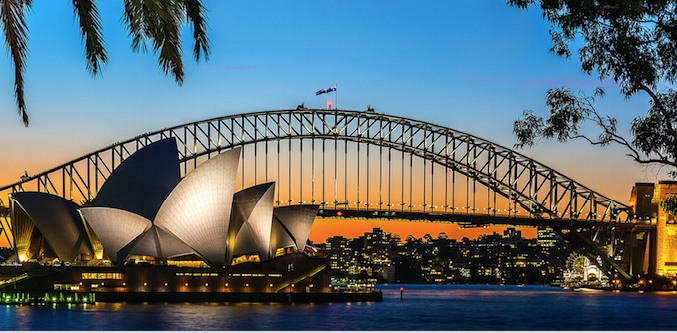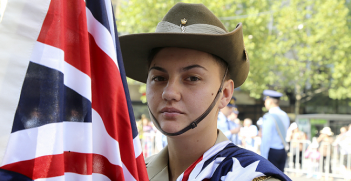The Soft Power of Down Under

With its natural beauty, laid-back lifestyle and friendly, easy-going citizens, it’s no wonder Australia has long been dubbed “the lucky country”. But these assets are more valuable than just being a source of Northern Hemisphere envy. Managed and promoted well, they can strengthen Australia’s soft power and bolster its position as a force in shaping global affairs.
The world is in the midst of a major power shift. The centre of global economic and political power is moving from West to East. Likewise, power is drifting away from governments, as non-state actors take a greater share of international influence and the digital revolution is encouraging greater public participation. To thrive in this evolving context, governments must adapt their approaches to foreign policy with more emphasis on public and digital diplomacy, networking and collaboration. Australia is no exception.
It was with this in mind that the Soft Power 30 index was created, a tool combining objective metrics with international polling data to assess a country’s soft power assets. Despite some significant threats to its soft power – population size, geographic isolation and perceived controversial policies – Australia performs well in the Soft Power 30 index, finishing sixth overall.
Australia as a desirable place to live, work and study
Results show that Australia outperforms its peers across a range of areas, most notably in its political values and quality of its public institutions. A high-functioning, well-run and efficient state, Australia not only scores highly in multiple government metrics but is also broadly trusted by international audiences to “do the right thing in global affairs”.
But by far and away Australia’s greatest strengths are its people and its appeal as a desirable place to work, live and study. Polling data shows that Australia scores highly amongst its peers for its perceived quality of life and welcoming treatment of foreign tourists. Australia’s best performing metric, across all 66 in the Soft Power 30, is average spend per tourist. This is despite ranking relatively low in the total number of tourists it welcomes. Australia also performs well in the number of foreign students it attracts, outranked only by the US, UK and France.
Rather than resting on its laurels, Australia would do well to leverage its hospitable assets through stronger and better-coordinated tourism promotion, new scholarship and exchange programmes and sharing its expertise in public sector delivery throughout the southern hemisphere.
An overhaul of Australia’s digital diplomacy
Soft Power 30 data identifies a number of areas where Australia could improve, including its cultural promotion endeavours and international engagement. Australia has a much smaller diplomatic network than its peers, does not host as many foreign embassies as its allies and has fewer permanent missions to multilateral organisations. In terms of culture, Australia underperforms in metrics like creative goods exports and music exports, and polling data suggests that Australia’s culture is not understood or recognised internationally.
Despite performing well overall in the Soft Power 30 Digital sub-index, Australia scores relatively low in all of the digital diplomacy-related metrics.
The opportunity for Australia to strengthen its digital diplomacy is there for the taking. It has proved it has the digital capabilities and infrastructure, and now needs to utilise these tools to strengthen its digital diplomacy and secure its position as a global voice. It should be investing far more in training and resources for digital engagement, especially for key political figures and ministries. It should also be workshopping creative ways to expand Australia’s diplomatic network. An overhaul in strategy would strengthen Australia’s weak engagement ranking and remove some of the geographical barriers preventing Australia from a higher soft power ranking. Shrinking distance and bringing Australia to a larger global audience through digital platforms needs to be a key priority for Australia’s foreign policy establishment.
Australia has shown it can punch above its weight despite facing some considerable threats to its soft power standing. But there will always be room for improvement. With the motivation and resources to strengthen assets and address weaknesses, there is no reason Australia can’t break into the top five.
As “the lucky country”, Australia’s soft power strengths are obvious and plentiful. But making gains by addressing its weaknesses will require a concerted effort. Looking ahead to this year’s Soft Power 30 index, we will keep a keen eye on Australia and the extent to which it has made progress in those areas that will boost the nation’s soft power, and with it Australia’s global influence.
Jonathan McClory is a Partner at Portland Communications and the author of the Soft Power 30 report. Olivia Harvey is an Account Executive at Portland and a researcher for the Soft Power 30 report. This article is published under a Creative Commons Licence. It may be republished with permission.





